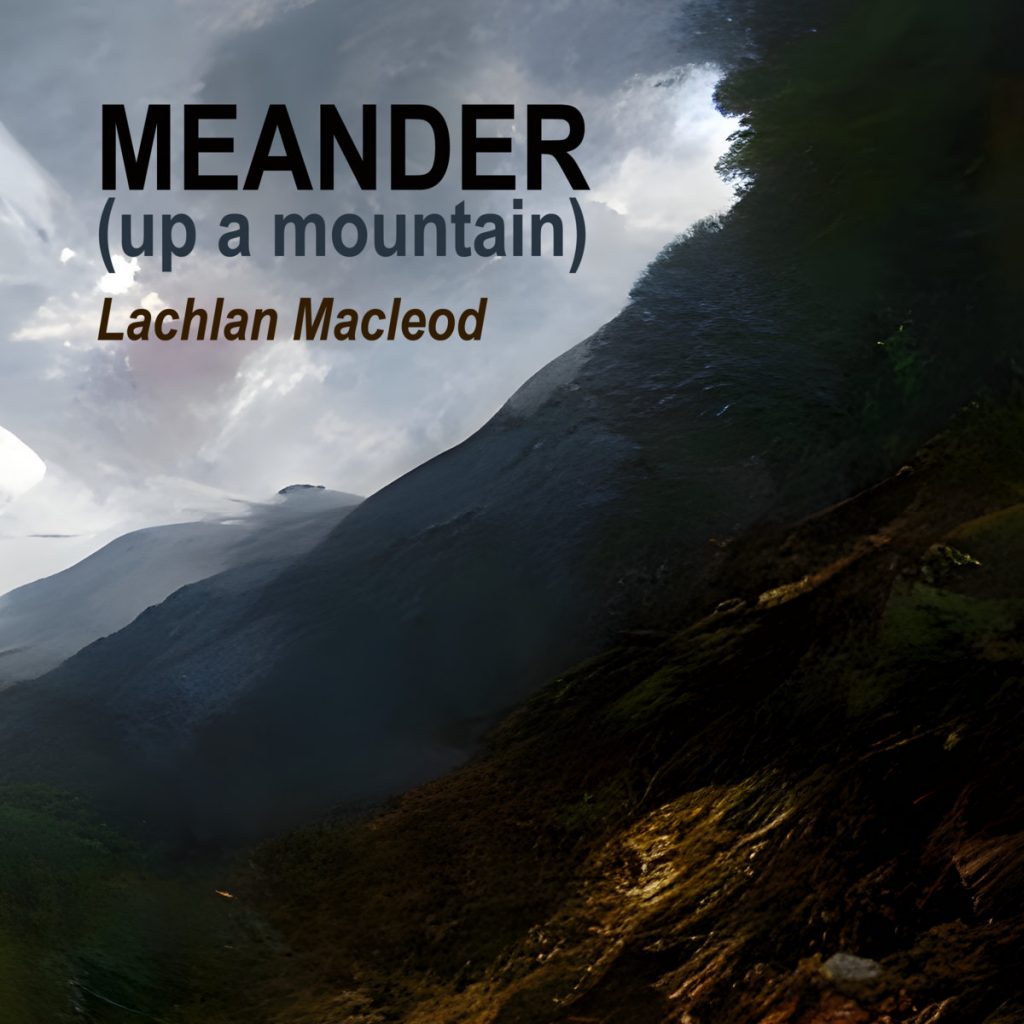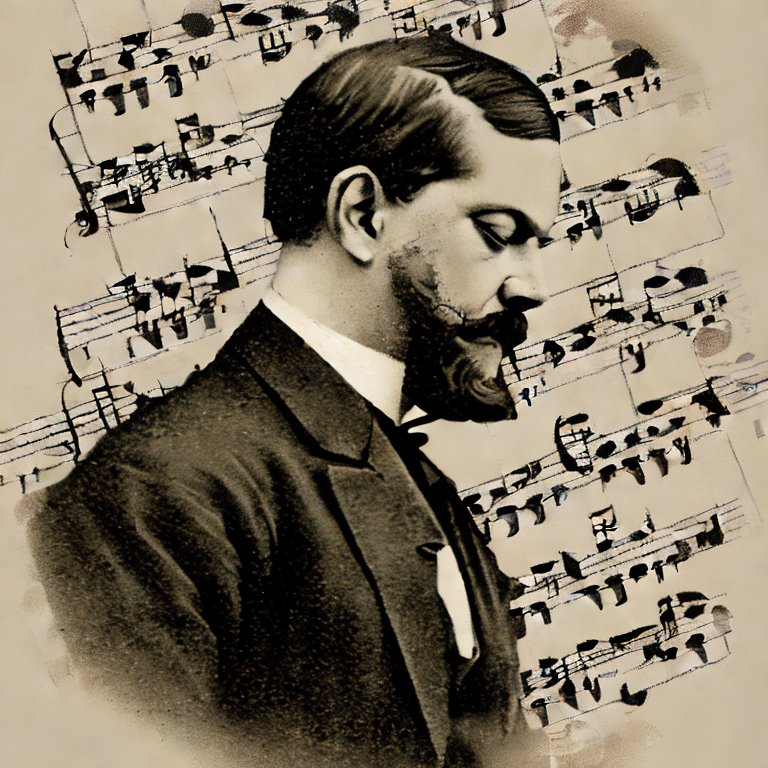
What does it mean to create?
What does it mean to create? What aspects of the process of creation are vital to the creation process, to the point where their absence would indicate you hadn’t created something?
I’d like to know where the line is between creation and assembly, creation and imitation, or creation and generation.
Just to be completely on subject, the images in this post are all generated by Stable Diffusion.
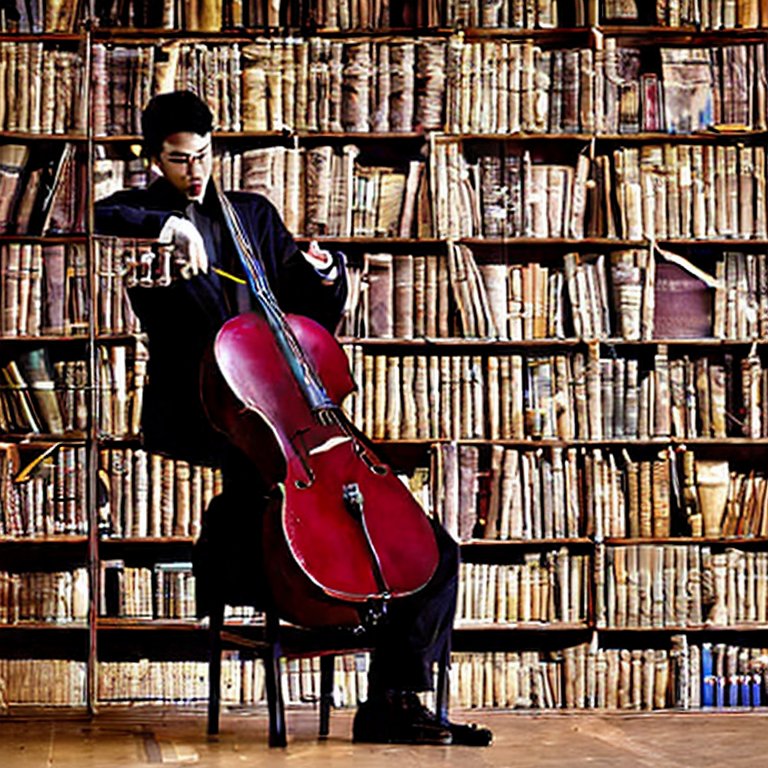
If I buy a bookshelf and assemble it in my home, did I create the bookshelf? The parts were all made before I was involved in the process, but I was responsible for the final step before it stopped being a collection of wood and started being a bookcase.
If I transcribe a symphony into sheet music, and then record myself playing each of the instruments of the orchestra, did I create music? Or am I simply playing somebody else’s creation?
Or, in a more current example, if I put an idea into an Artificial Intelligence art generation tool, and it uses that idea to generate an image from assumptions built on analysing millions of existing pieces of art, did I create art? Or did I just generate it?
If I had to simplify it, I would say that “the creator” is the person who was the primary reason a thing, which was not there before, is there now. This breaks down very quickly of course. It can be difficult to pinpoint a primary person sometimes, and causality is always messy.

If a guitarist makes a piece of music, could the guitar-maker be given credit, since without them the guitar would not have existed on which this music was played? If a rich person agrees to sponsor a musician with a wage while they record an album, did the rich person create that album?
As with many philosophical and etymological questions, I think there is no simple answer to this question. I do think, however, that exploring some of the potential answers might prove interesting.
To that end, I have gathered a few elements that I think contribute to the idea of creation:
- Innovation – Having an original idea.
- Work – Putting in effort or time.
- Skill – Using your training.
- Intention – Having a vision of something you wish to create
- Materials and tools – Taking disparate materials and combining them into something new
Innovation
I used to have an idea about music composition, that in order to write a new piece of music, I had to first invent a new set of chords around which the song would be based. If it turned out another song had already used a set of chords, I would come to the conclusion that I was not writing a new song, simply copying that one.

Of course I now know that to be a ridiculous requirement. Western music is built on familiarity. Familiar chord structures can be used as a base for interesting and innovative instrumentations, melodies, counter-melodies and harmonies. Many songs sound very similar, but have different lyrics, leading to an entirely different meaning.
While an original idea can be a great way to start a creation, some of the pieces of music I’m most proud of started with an idea from somebody else’s music, then evolved into an entirely different thing.
So I don’t think you need to have come up with the inciting idea to be able to take credit for creating something. After all, if all you did was come up with an idea and get somebody else to make it, I don’t think you could claim full credit then either.
I think the concept of ideas being the same as creation is a core issue within AI generated art of all types. After all, if you tell an AI an idea, and it generates it for you, did you create it?
Work
Recently, I have been struggling with the idea that creation is about work.

A musical composer might spend a day writing and refining some lyrics, making sure they convey their meaning as much as possible. Then, they might spend a few evenings playing on a guitar, finding a set of chords that suits those lyrics, and finding a melody with which to sing them.
Then, they might spend a week or so practicing singing that song while playing the guitar part, to get it as polished as possible, before recording the performance several times, to try and get a good take.
After that, they might figure out backing tracks, such as drums, bass guitar, keyboards, extra vocals, and record those too. And, with a complete song recorded, they might then spend another week or so just mastering the recording, playing with EQ, effects, balance and the like.
All this work would result in a song that the composer had poured weeks and weeks into, adding and refining until they had a final creation they were proud of. Nobody would question that the composer had created something.
Compare that to the process I’ve sometimes taken to create a piece of music. I get home from work one evening, inspired to create something. I play around with software instruments, or sometimes real instruments, laying down semi-improvised tracks for a few hours, spending about half an hour or so on each instrument.
After three hours, I might have a completed track. I tweak the balance between the instruments, maybe add reverb, and hit Export, ready to upload the track.
Did I create my piece of music, if I only put a few hours of work into it? For that matter, if I just improvised a single track and hit publish, taking a grand total of five minutes to make some music, did I create that?
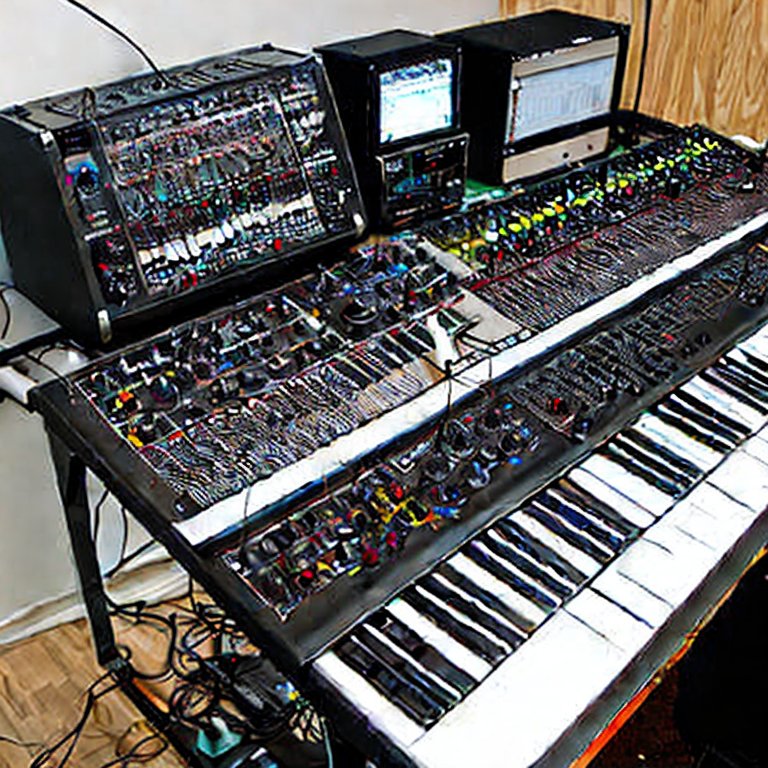
What if I set something up to generate random music based on a set of parameters, as would be common in modular synthesiser music? I could push a few buttons, walk away, and let the synthesiser generate hours of music while I’m off somewhere else reading a book.
This factor plays with the current Artificial Intelligence debate a lot too. Spending a few minutes waiting for an AI to generate a piece of art that would have taken a traditional artist days or weeks to create certainly doesn’t count towards the work aspect.
On the other hand, some AI artists will spend hours generating images, refining their prompt, sorting through alternatives until they find one that works, and then spend hours adjusting and refining that one until they achieve a satisfactory outcome.
As with innovation, I think work is a contributing factor, but not the only defining factor in whether a person created something. It also comes down to how it interplays with the other factors, such as whether I spent years building up my musical skills to be able to put something together that quickly.
Skill
It could be argued (and in fact probably has been argued) that art of all sorts is primarily a showcase for the skill built up by an artist over their lifetime. A pianist spends years learning music theory, practicing playing the piano, and getting better at composing music so that over the course of seven minutes they can improvise an original piano piece on stage.
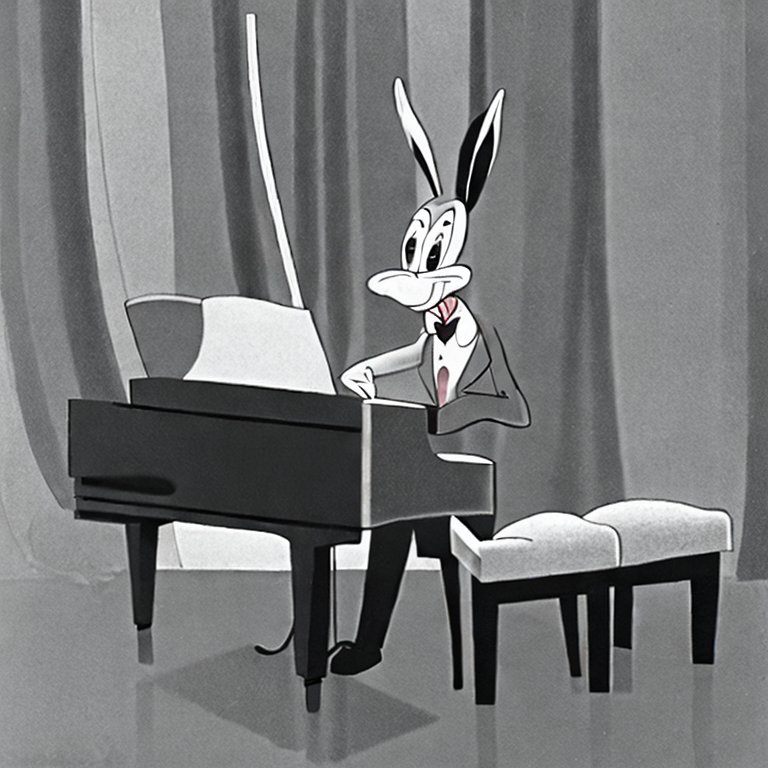
The recording of this performance might then be uploaded to a music streaming platform. The performance and recording itself only took seven minutes, but it was the culmination of years and years of training and work.
I don’t think anybody would argue that this pianist did not create that piece of music. It was their skills and intuition that made it possible. It was a showcase for their musical ability.
Some of the AI art debate seems to centre around people without artistic skill being able to achieve something that would have taken a traditional artist years of practice to achieve. That being the ability to turn an idea into an image.
In a way, AI art is showcasing the skills and training of all the artists it analyses in order to create its images.
Yet again, I think that skill is not an all-encompassing metric for whether or not an artist has created a piece of art. It is certainly an important aspect of creation, but it isn’t a requirement.
For example, if someone with no musical training sat down at a piano and figured out two chords that sounded nice by adding and subtracting keys, then made up a heartfelt song to sing over those chords, would they not have created music?
Perhaps they could be said to have created music because they had a song to sing, and a concrete concept of what they wanted to achieve.
Intention

I once held an idea that in order to legitimately create music, I had to know exactly what I was going to create before I started. I had this vision of a composer waking up in the morning with a fully formed symphony in their head, and rushing to write it all down in manuscript until it perfectly matched what they had already decided on.
Wolfgang Amadeus Mozart apparently composed this way, but it is not the norm. Most composers draft, adjust, add and subtract, exploring the compositional space without a complete idea of how it will sound before they start.
In direct contrast there’s also unintentional sound. If a musician records the sound of a busy city street, have they created music?
John Cage might have said yes, judging by his piece of music 4’33” (or four minutes thirty three seconds). A popular view of this piece of music is that John Cage wrote the piece to be four and a half minutes of silence, but the intention of the piece was to imply that incidental unintentional sound was also music, such as the shuffling of shoes and incidental coughs in the concert hall.

This is possibly more relevant in terms of visual art, where a realist painter might start with an intention to capture the landscape, or scene, or person in front of them. One could contrast a realist painter such as Jean-Francois Millet with a more abstract painter like Jackson Pollock. Millet appeared to enter into the painting process with a specific outcome in mind, while Pollock embraced the random nature of his painting style.
Of course, approaching composition with an intended outcome does happen in music composition, more often when you’re working to a brief. I struggled in my earlier years after hearing that a lot of film and television directors were going to ask a soundtrack composer to “make some music that sounds like this Moby song, but legally distinct enough that it isn’t this Moby song.”
Using the skills and tools I had, I struggled to create any music that sounded like any Moby song.
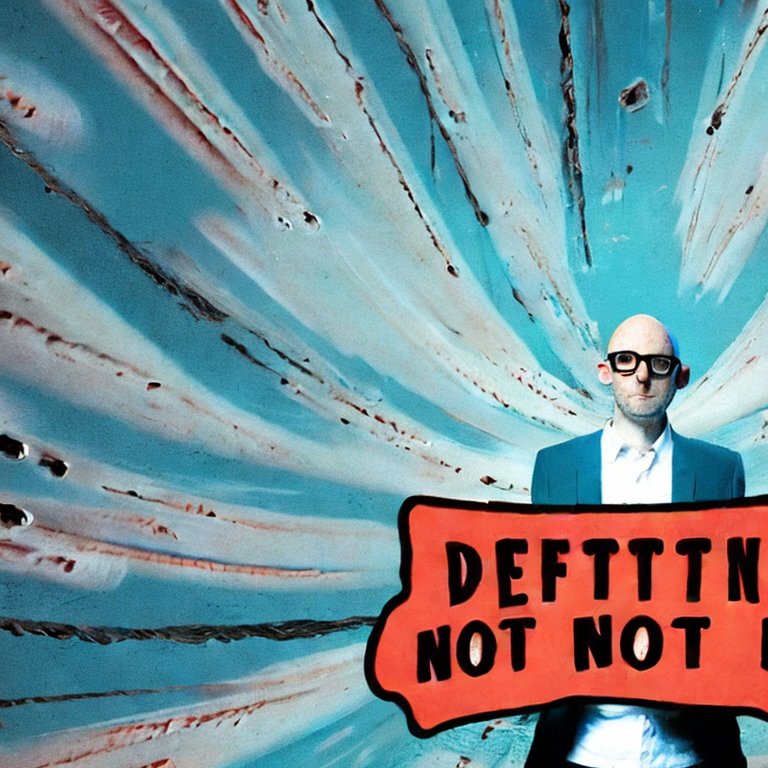
I think relying on intention in creating art can lead to frustration, when really a more freeing (and I think more common) method of creation is to explore the possibilities of the tools and skills at your disposal. If you’ve only got a guitar, you’re not going to sound like a Beethoven Symphony no matter how hard you try. But you might create some great guitar music.
Some of the music I’m most proud of is explorative in nature, where I got hold of a new tool (a new mandolin, a midi keyboard, some software instruments) and I just sat down at my computer to see what these new tools would allow me to create, not worrying about whether I was making it sound like Moby.
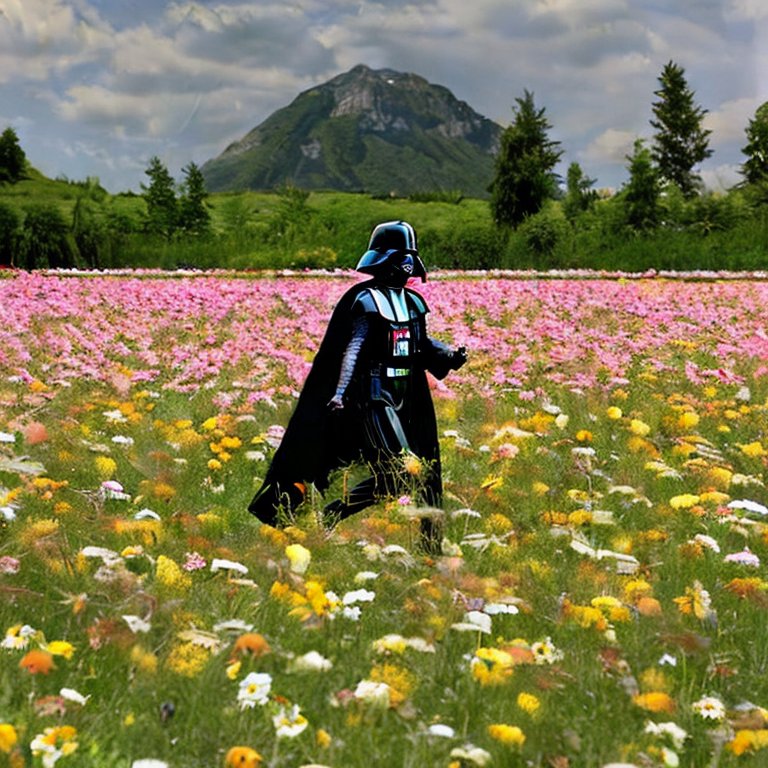
Similarly, in AI art, a lot of the intentionality isn’t there. You might ask an AI art generator to give you “Darth Vader skipping through a field of flowers” and it includes a TIE fighter in the background. Or it makes the flowers tulips, and gives you a windmill made out of Star Destroyers as well.
You wouldn’t have chosen those extra factors, or even determined Darth Vader’s pose, or what time of day it was, or even what planet it was on.
In a way, this could be seen through the lens of a tool. We can’t be expected to have intention about every aspect of a piece of art. A guitarist isn’t going to choose the exact harmonic frequencies that the body of their guitar will vibrate at, determining a lot of the harmonic value of a chord.
A painter isn’t going to use a pin to place every piece of paint intentionally on a canvas. They’re going to use a brush, which introduces width, texture, and a certain amount of unpredictability to a brush stroke. Well, maybe someone might do the pin thing, but it would take a long time.
Materials and tools
This leads me to materials and tools. This factor is more of a reason I sometimes feel unable to take credit for creation.
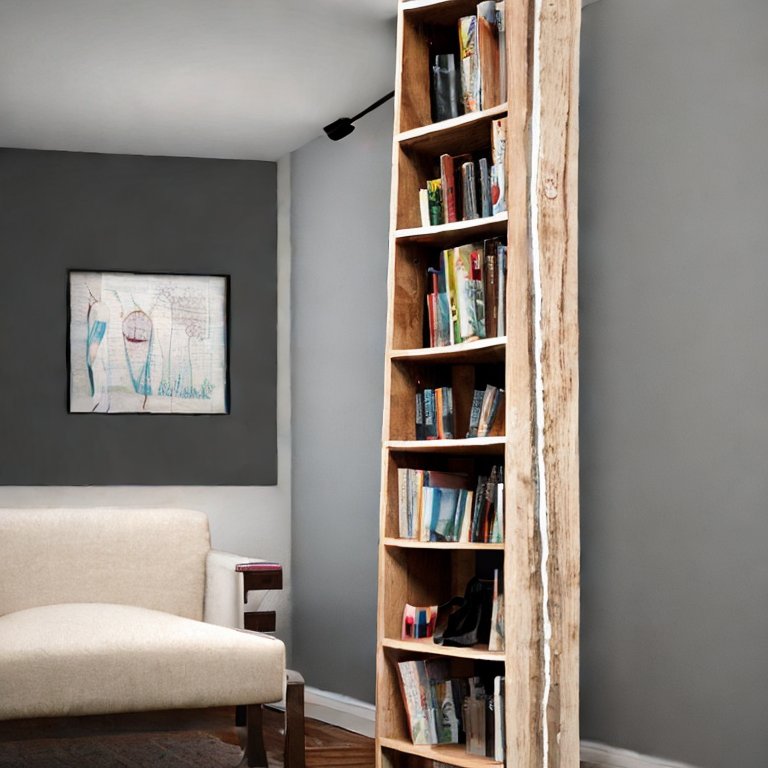
Returning to the bookshelf, if I buy it in parts and assemble it in my home, have I created it? I didn’t source the planks, or decide how tall it would be, or how the sides would fix onto it. I didn’t make the tools I used to build it.
Let’s say I create a piece of music. I use only my own voice and hands. I perform it live in front of others. I have created music.
Then, if I record myself, I’m using a microphone that I didn’t make, software I didn’t make, and then uploading it to a web service I put no effort into running.
You might say “of course you still made that music” but at what point does that change?
Let’s say I use a guitar. I didn’t build the guitar, nor did I come up with the concept of guitars. Of course I still made the music.
What if I use a digital synthesiser pre-set? I opened up a digital instrument and changed no settings, just played the notes. Did I still create that music?
What if I use only pre-made loops or samples from other songs? You can do this with GarageBand, creating entire songs out of loops. Did I create that music?
How about remixes? Mashups? Combinations of pieces of other songs that already exist?

What if I took an existing piece of music and slowed it down to 80% of its original speed? Did I create music?
I think this is a difficult line to draw. I don’t think it’s reasonable to assert that a musician has only created a piece of music if they made it all from scratch. Even if I only use my voice and hands, I’m still building on centuries of music theory that I didn’t create.
Conclusion
What does it mean to create? What aspects of the process of creation are vital to the creation process, to the point where their absence would indicate you hadn’t created something?
The answer is that it’s messy. It’s some combination of some or all of:
- Innovation – Having an original idea.
- Work – Putting in effort or time.
- Skill – Using your training.
- Intention – Having a vision of something you wish to create
- Materials and tools – Taking disparate materials and combining them into something new
If you have an idea, put effort and skill into exploring that idea, with some intention of an outcome, using materials and tools available to you, then maybe yes, you have created something.
If you just have an idea, then get somebody else to put their work and skill into making it come to fruition, maybe that other person created something. But hey, you still had the idea.
If you used your skills, and put in effort and time, but had no intentional outcome in mind, I think you could still have created some art.
As with many philosophical and etymological questions, I think there is no simple answer. I do think, however, that exploring some of the potential answers has revealed some things about the assumptions we make about art and the act of creation.
And now I’ve written some things about creating. By the way I have some music around in various places, including Bandcamp and Soundcloud.
